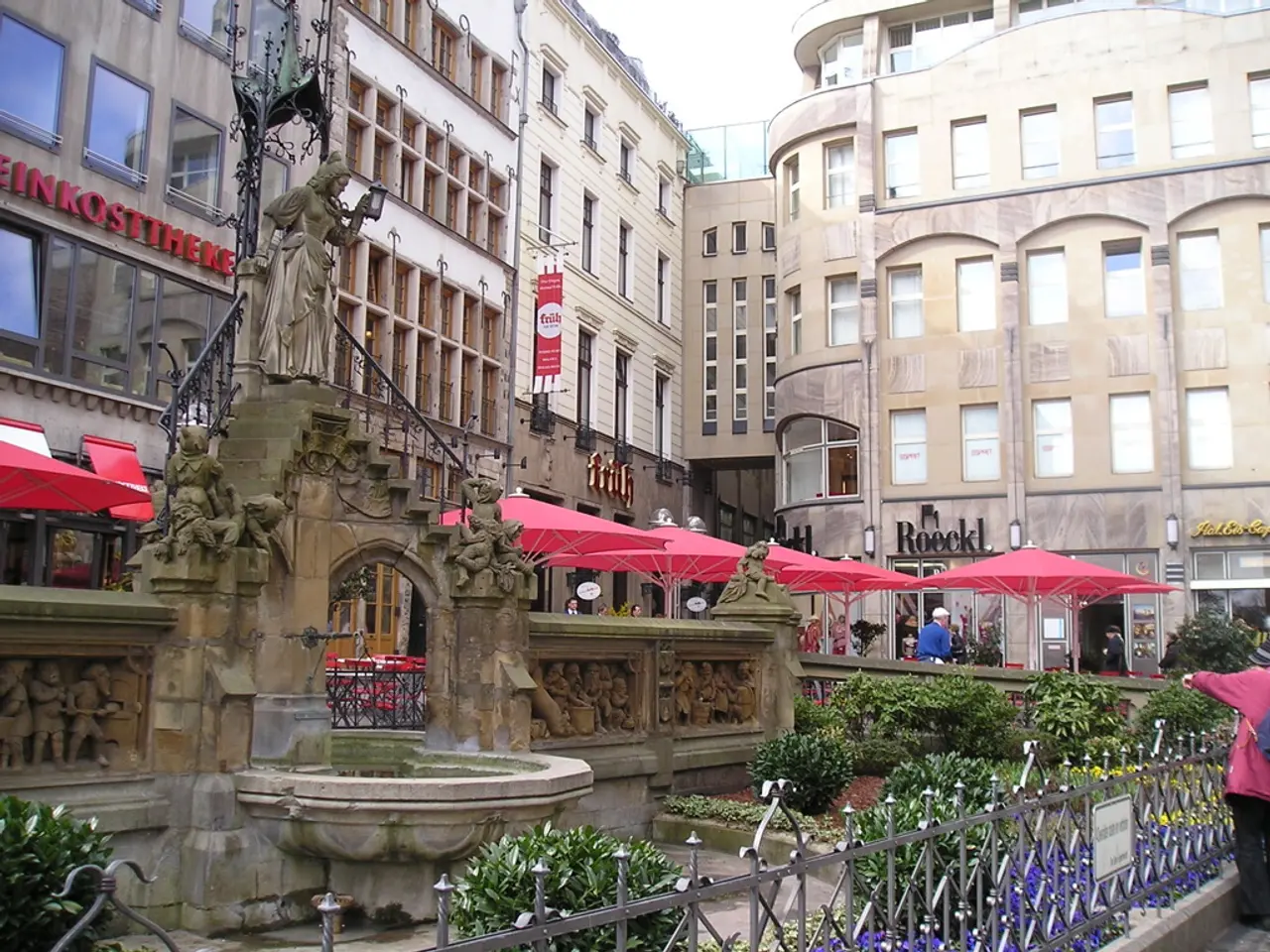Eco-conscious Islam: Movement fostering links between faith and natural world among Muslim communities
Sustainably Muslim: Reconnecting East London Muslim Communities with Nature
Sustainably Muslim, a grassroots environmental initiative based in east London, is making strides to reconnect Muslim communities with nature. Founded in 2020 by Nazia Sultana, the project aims to encourage more Muslims to get involved in environmental action [2].
The community garden at Trinity Community Centre in Canning Town is currently being tended to by volunteers regularly. This space, revived earlier this summer, is used by locals for food growing and serves as a hub for environmental education and conservation efforts [4].
The garden features a variety of edible plants such as wood avens, red campion, and garlic mustard, as well as pollinator-friendly species like lavender. Sustainably Muslim partners with organizations such as the Bat Conservation Trust and the Bumblebee Conservation Trust to ensure the project's success [6].
Research by the charity Groundwork has shown that people from ethnic minority backgrounds are less likely to live within a five-minute walk of a green space [1]. Sustainably Muslim's initiatives aim to bridge this gap, providing accessible green spaces for the local community.
The project led by Sultana is not just about hands-on gardening. It also serves as a support network fostering environmental activism and education, offering opportunities for learning and engagement, especially to those who did not grow up with direct experience in this area [1].
According to the 2024 Muslim Climate Action report, co-authored by Sultana, 93% of respondents are concerned about the climate crisis and feel underrepresented in discussions about it [5]. The report also suggested volunteering with local environmental organizations, community dialogue, and educational workshops as key ways for people to take climate action [7].
Looking to the future, Sultana has plans to expand Sustainably Muslim's initiatives beyond Canning Town. She envisions the project growing to cities like Bradford and Manchester, continuing to address the climate crisis and social inequalities, particularly in areas with limited access to green space [8].
Sustainably Muslim is looking to partner with local communities to determine the best plants and vegetables for their specific areas, ensuring the project's relevance and success in each location [9].
Access to nature has been found to help reduce anxiety and loneliness and have a positive impact on mental health [10]. By reconnecting communities with nature, initiatives like Sustainably Muslim are not only promoting environmental action but also contributing to the wellbeing of their participants.
[1] Groundwork. (2021). Ethnicity and access to nature: A review of the evidence. [2] The Guardian. (2020). Nazia Sultana: the young Muslim woman transforming London's green spaces. [3] Sustainably Muslim. (n.d.). About us. [4] East London Advertiser. (2021). Canning Town community garden revived by volunteers. [5] Muslim Climate Action. (2024). Muslim Climate Action report. [6] Sustainably Muslim. (n.d.). Our partners. [7] Muslim Climate Action. (2024). Muslim Climate Action report. [8] Sustainably Muslim. (n.d.). Future plans. [9] Sustainably Muslim. (n.d.). Community engagement. [10] Mind. (2021). The mental health benefits of green spaces.
Members of the Sustainably Muslim community could enhance their lifestyle and home-and-garden experiences by learning about and growing various edible plants in community gardens, such as the one in Canning Town. These gardening activities not only provide a means for environmental action but also contribute to mental wellbeing by reducing anxiety and loneliness.




